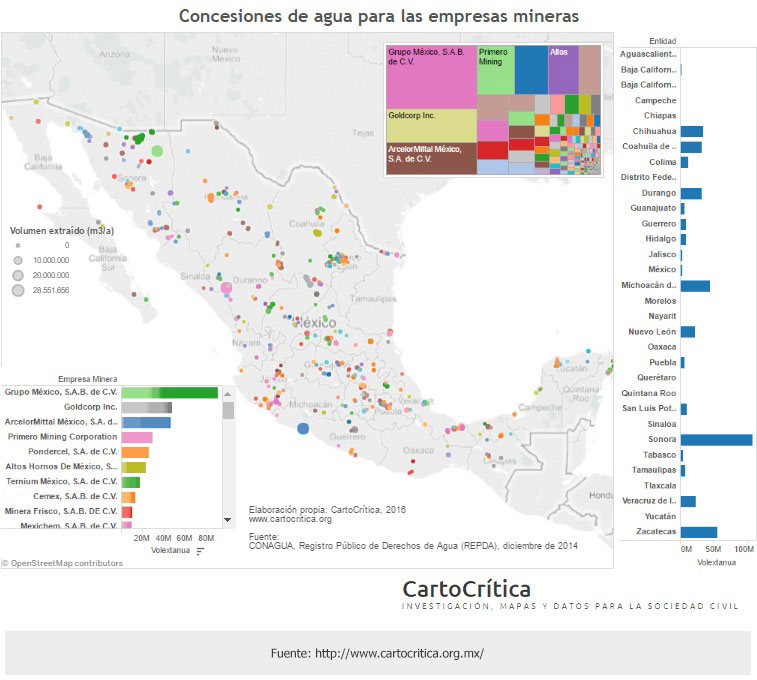CartoCrítica, free access to map data in Mexico
Fecha de la noticia: 11-07-2016

CartoCrítica is an independent civil initiative, a non-profit organization that works for transparency and free access to public information in Mexico, applying geospatial technology, re-using national open data and cartographic analysis to defend the national territory, the human rights and the environment.
Thus, the platform offers different maps and visualizations segmented into seven categories - environment, water, hydrocarbons, mining, indigenous peoples and health- where users can know the current situation in these areas and, through the data that the initiative collects and treats, understand what is happening in their country.
So, thanks to CartoCrítica in collaboration with the Mexican Alliance Against Fracking, the citizens were informed that nearly a thousand oil wells use the fracking process to extract oil or natural gas in Mexico. In this way, the entity alerted that those perforations were made without any consultation or consent of the affected communities, as it is stipulated in Article 120 of the Mexican Law of Hydrocarbons that obliges those entities to inform the affected population about such projects.
Other examples of the benefits of the openness and re-use of open data are the recent visualizations of Cartocrítica on the water concession to the mining industry in the country; a sector where it is very difficult to find public, accessible and detailed information. In order to know the impact of mining activities in the Mexican environment and its water consumption, a comprehensive information search was performed to create maps and data tables to show the project conclusions.

So, thanks to the work of the entity, we know that mining industry in Mexico has been granted the same volume of water that twelve million people would need in a year; in a country where there are still 13.8 million people with no access to water in their homes.
Thanks to initiatives like Cartocrítica which makes available public sector information that is hidden and transform it into knowledge, citizens can be better informed and participate in the processes that affect their context. Therefore, the further collaboration with both public and private entities is needed to promote the openness of data that remain inaccessible. Only in this way projects as Cartocrítica can reuse them for the common good, revealing and focussing on those bad practices and abuses that occur in the different socio-economic sectors











